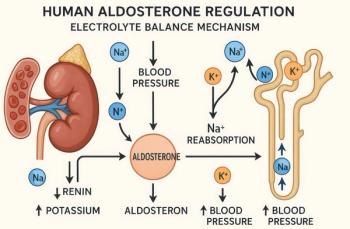
ASH: Abbreviation at the Core of Choice of Diuretics
CHICAGO -- For the lack of a convenient abbreviation, a diuretic with a good track record for hypertension is often spurned on prescription pads, said researchers here.
CHICAGO, May 20 -- For the lack of a convenient abbreviation, a diuretic with a good track record for hypertension is often spurned on prescription pads, said researchers here.
The abbreviation for the diuretic hydrochlorothiazide is HCTZ, short and sweet. Yet there is no standard abbreviation for chlorthalidone, which, asserted investigators at the American Society of Hypertension meeting, may be the better choice for many hypertensives. So HCTZ wins the day, for better or worse.
"Chlorthalidone has shown over and over again that it has a superior record in diuretic trials compared with hydrochlorothiazide," said William Elliott, M.D., of Rush-Presbyterian-St. Luke's Medical Center here.
So far more patients are written prescriptions for hydrochlorothiazide -- because it can be abbreviated HCTZ, a recognized shorthand in pharmacology. "If you want to prescribe chlorthalidone you have to write out all 14 letters."
This means, said Dr. Elliott, that the ability to use the abbreviation results in patients getting inferior treatment for high blood pressure.
Among the studies he cited was the MRFIT (Multiple Risk Factor Intervention Trial) [JAMA. 1982 Sep 24;248(12):1465-77] in which patients treated with chlorthalidone achieved better outcomes than patients on hydrochlorothiazide diuretics.
In the Hypertension Detection and Follow-Up Program (HDFP) [Prev Med. 1976 Jun;5(2):207-15], Dr. Elliott noted that patients treated with hydrochlorothiazide had 44% more coronary heart disease and 16% more deaths compared with referred-care patients treated by primary care physicians. On the other hand there was 58% less coronary heart disease and 41% fewer deaths among patients were treated with chlorthalidone compared with referred care patients.
Overall the study compared "stepped care" according to the study protocol with "referred care" that was provided as determined by private practice physicians.
In a third study that directly compared the two diuretics [Hypertension, 2006: 47:352], Dr. Elliott noted that patients on chlorthalidone reduced blood pressure by a 12.5 mg Hg compared with a reduction of 7.5 mg Hg for those on hydrochlorothiazide (P=0.056) after six weeks of ambulatory blood pressure monitoring.
Nighttime systolic blood pressure fell 13.5 mg Hg for patients on chlorthalidone compared with a fall of 7 mg Hg (P=0.009); office systolic pressure fell 16mg Hg for patients on chlorthalidone compared with a fall of 4.5 mg Hg with hydrochlorothiazide (P
Dr. Flack disclosed possible conflicts of interest with Novartis, National Institutes of Health, Pfizer and CVRX.
Newsletter
Enhance your clinical practice with the Patient Care newsletter, offering the latest evidence-based guidelines, diagnostic insights, and treatment strategies for primary care physicians.

































































































































